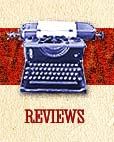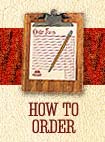FOLKS, HE SURE DO PULL SOME BOW!
Vintage Fiddle Music
1927-1935
Old Hat CD-1003
A Mix of the Sort of Famous and the Obscure
By David Gates / Newsweek / March 29, 2001
A new anthology casts a wide net over the lost art of African-American fiddling
In 1999, North Carolina folklorist and collector Marshall Wyatt released “Violin, Sing the Blues for Me,” a revelatory and well-chosen anthology of African-American fiddlers from the ’20s through the ’40s, on his own label, Old Hat Records. At the time, music historian Ed Ward wrote in The New York Times that this CD “opened the door to a further exploration of the violin's role in African-American music of all kinds.” Wyatt probably didn’t need the encouragement: your first impulse on hearing this music is to go after more, and the second is to share it.
But this and other favorable publicity might have helped him get out his sequel a little sooner. “Folks, He Sure Do Pull Some Bow!” (the title comes from W.C. Handy’s “Memphis Blues”) covers a smaller span of time, from 1927 to 1935, but casts a wider net. It ranges from raw Mississippi Delta blues to sophisticated urban jazz, from barn-dance hoedowns to what Wyatt says is a polka by musicians from the Cape Verde Islands- though with those tangolike twitchings in the rhythm guitar, you might dislocate something if you tried your usual Frank Yankovic moves. And as satisfying as “Violin” is, this collection is still better.
As Wyatt points out in his thorough, lucid and generously illustrated booklet, “the violin once held center stage in the rich pageant of vernacular music that evolved in the American South... and the fiddle held sway as the dominant folk instrument of both races until the dawn of the 20th century.” Today, though, except for the odd jazz violinist like Regina Carter or the cowboy-hatted bluesman Clarence “Gatemouth” Brown (who’ll put down his electric guitar mid-set to play a fiddle tune), African-American music has mostly abandoned the violin to white country fiddlers. Slides, slurs and voicelike cries still issue from guitars, harmonicas and saxophones, but even in the 1920s the fiddle was on its way out- probably less because it was insufficiently expressive than because it was old-fashioned (it long predates the guitar in America), countrified and, like the banjo, painfully associated with minstrelsy and plantation imagery. (Wyatt’s booklet reproduces an old postcard folder with a picture of “A Happy Fiddler in Dixie Land.”) Black fiddlers typically played with more vibrato and a rougher, fuller, more hornlike tone than their white counterparts; they could be more fearless, even rash, about venturing into the upper register, and their bowing patterns seemed less predictable. In uptempo pieces, their headlong attack sounded unlike the white fiddlers’ rhythmic flow, and their slow blues had a lonesomeness entirely different from the lonesomeness of the white mountain fiddlers’ modal drone.
Like “Violin, Sing The Blues For Me,” Wyatt’s new anthology mixes the sort-of-famous with the obscure. Blues aficionados will know the Memphis Jug Band, the Mississippi Sheiks, “Peg Leg” Howell, Joe Williams (not Count Basie’s singing star, but Big Joe, the Delta nine-string guitarist) and Peetie Wheatstraw, who billed himself as “The Devil’s Son-In-Law” and “The High Shefiff From Hell.” The fiddler for the little-known Alabama Rascals is the well-known singer-guitarist Big Bill Broonzy; for the equally little-known Tennessee Chocolate Drops, it’s Howard Armstrong, often heard at folk festivals in the 1970s and ’80s. The pianist for an outfit called Clifford Hayes’ Louisville Stompers is unmistakably (and documentedly) Earl “Fatha” Hines, a jazz legend ever since he recorded “Weather Bird” with Louis Armstrong in 1928- though Hines himself later denied that he’d ever played with these “hillbillies.” But groups like Abrew’s Portuguese Instrumental Trio, who recorded that Cape Verdean polka (“Cabo Verdranos Peca Nove”) in New York in 1931, really are obscure. At least we know that the brilliant fiddler Agusto Abreu- whose name the record company misspelled- was born on the Cape Verdean island of Fogo around 1890 and died in Sacramento, CA, sometime in the 1950s, but the guy who played viola (that is, 12-string guitar) is a Puerto Rican remembered only as Angelo. Then there’s The Bubbling-Over Five, who recorded a tune called “Get Up Off That Jazzophone” in Richmond, VA, in 1929; nobody knows who’s playing banjo or saxophone, and the sly-sounding fiddler is identified (by the singer) only as “Mr. Spitz.” In fact, nobody even knows for sure what a jazzophone is- a harmonica?- or how you’d go about getting up off one.
But obscure or not, these are master musicians whose voices shouldn’t be lost. The brothers Lonnie and Bo Chatmon, or Chatman, (Bo is better known for his double-entendre blues guitar records as Bo Carter) fiddle authoritatively on “The Jazz Fiddler” and “Good Old Turnip Greens.” (The latter, by the way, contains some unusually stark observations on race: “The white man goes to the college and the Negro to the fields/ The white man will learn to read and write and the Negro will learn to steal.”) “My Four Reasons” by Banjo Ikey Robinson and His Bull Fiddle Band features not only the fleet-fingered fiddler Robert Waugh, but a vocal by Frankie “Half-Pint” Jaxon, the once-popular Chicago singer and female impersonator. And on “G Rag,” a rare interracial recording from 1927, the Georgia Yellow Hammers, a white string band, replace their regular fiddler with the passionate Afro-Cherokee musician Andrew Baxter. As Wyatt notes in his booklet, “blacks and whites may have played music together in a variety of settings” in the lost world of the American South, but most such collaborations were never recorded and will never be known- if they ever happened. Indeed, all the music on “Folks, He Sure Do Pull Some Bow!” suggest, if not interracial collaboration, and least interracial complementarity. At any rate, it represents a tradition that’s long gone, and in hindsight (or hindsound), even the livliest of these tunes take on overtones of melancholy. And yet- here it still is. Just listen.
|















